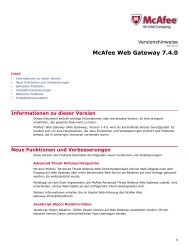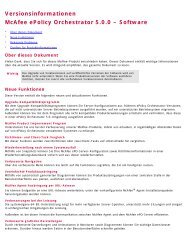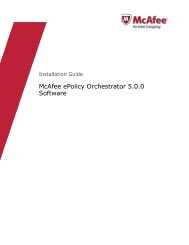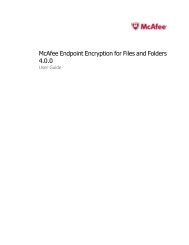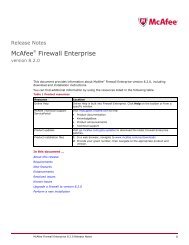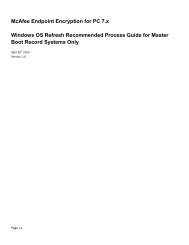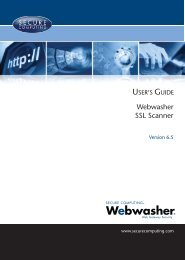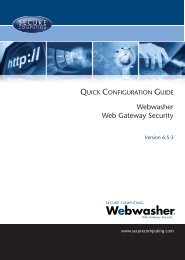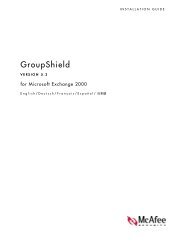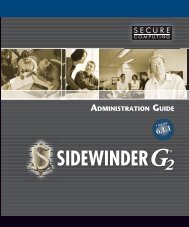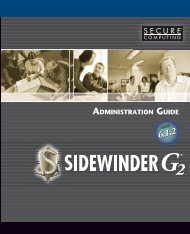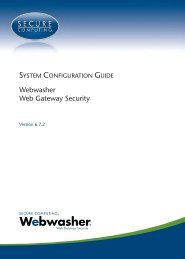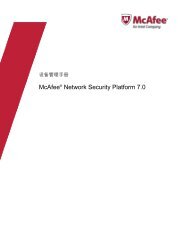Webwasher 6.0.1 Anti-Malware User's Guide - McAfee
Webwasher 6.0.1 Anti-Malware User's Guide - McAfee
Webwasher 6.0.1 Anti-Malware User's Guide - McAfee
You also want an ePaper? Increase the reach of your titles
YUMPU automatically turns print PDFs into web optimized ePapers that Google loves.
Cookie Filter<br />
The Cookie Filter section looks like this:<br />
Using this section, you can configure a filter to block bad cookies.<br />
Common<br />
You can set the lifespan for neutral cookies or let them expire after finishing<br />
the browser session.<br />
The Cookie Filter controls the data stream between users and the Web in both<br />
directions, a requirement for efficient filtering. Transmitted cookies coming in<br />
on the Web server, in addition to those from the browser, are controlled by<br />
<strong>Webwasher</strong>.<br />
The distinction between the good, and thus necessary cookies, and the bad<br />
cookies that invade privacy is carried out by <strong>Webwasher</strong> using an algorithm<br />
and the built-in filter list depending on the URL of a cookie.<br />
To add and edit cookies on this list, go to the Cookie Filter List tab.<br />
If you want to use this filter, make sure the checkbox next to the section heading<br />
is marked. The checkbox is marked by default.<br />
After modifying any of these settings, click on Apply Changes to make the<br />
modification effective.<br />
Use the following items to configure cookie filtering:<br />
• Disable built-in filter list<br />
If this option is enabled the built-in filter list is used.<br />
The option is disabled by default.<br />
• Neutral cookies expire after<br />
Use the radio buttons and input fields provided here in the following way:<br />
— a time period of . . . h . . . min<br />
3–47



